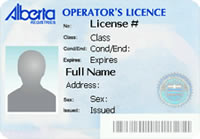Difference between License and Lease
Key difference: A license (American English) or licence (British English) gives permission to a licensee to do something in particular, e.g. a driving license, a business license, liquor license, etc. A lease, on the other hand, is a contract between two parties, as decided by them. The owner allows the user or lessee to use the object or property for a given time, under specific conditions or for money or remuneration provided.
 License is an authorization that grants permission to do a certain task. A license may be issued by particular authorities. A lease is a contractual arrangement that allows the lessee (user) to use an asset and pay the lessor (owner) remuneration, as previously agreed upon.
License is an authorization that grants permission to do a certain task. A license may be issued by particular authorities. A lease is a contractual arrangement that allows the lessee (user) to use an asset and pay the lessor (owner) remuneration, as previously agreed upon.
According to Dictionary.com, ‘license’ is described as:
- Formal permission from a governmental or other constituted authority to do something, as to carry on some business or profession.
- A certificate, tag, plate, etc., giving proof of such permission; official permit: a driver's license.
- Permission to do or not to do something.
- Intentional deviation from rule, convention, or fact, as for the sake of literary or artistic effect: poetic license.
- Exceptional freedom allowed in a special situation.
- Excessive or undue freedom or liberty.
- The legal right to use a patent owned by another.
Dictionary.com defines ‘lease’ as:
- A contract renting land, buildings, etc., to another; a contract or instrument conveying property to another for a specified period or for a period determinable at the will of either lessor or lessee in consideration of rent or other compensation.
- The property leased.
- The period of time for which a lease is made: a five-year lease.
Essentially, a license (American English) or licence (British English) gives permission to a licensee to do something in particular, e.g. a driving license, a business license, liquor license, etc. A license can also denote the document recording that permission as issued by the licensor. It may or may not require remuneration or a fee. Remuneration is the act of paying or recompensing for work, trouble, or product. The requirement may also serve to keep the authorities informed on a type of activity, and to give them the opportunity to set conditions and limitations, such as sale of cigarettes or liquor.
 A lease, on the other hand, is a contract between two parties, as decided by them. The owner allows the user or lessee to use the object or property for a given time, under specific conditions or for money or remuneration provided. For example: a person may lease an apartment for a year in return for the rent paid. Or a company may lease machinery for as 5 years in return for yearly compensation.
A lease, on the other hand, is a contract between two parties, as decided by them. The owner allows the user or lessee to use the object or property for a given time, under specific conditions or for money or remuneration provided. For example: a person may lease an apartment for a year in return for the rent paid. Or a company may lease machinery for as 5 years in return for yearly compensation.
The main differences between a license and a lease are:
- There is transfer of interest in the property in a lease; but not in a license.
- Tenant becomes the possessor during the period of the lease. But a license does not generally transfer the possession to the licesee.
- Lease is transferable. License is not transferable.
- A lease is not revocable. A license is revocable.
- Trespassers can be sued by the lessee in his own name; but a licesee cannot.
- Death of either party does not affect a lease. A license is terminated by death of a party.
Examples:
- A person can lease a warehouse from somebody for say 10 years. However, he needs to have a license in order to say use the warehouse as a public storage facility.
- One might lease a store from a company but would require a business license to open a convenient store.
- One can lease a car but will require a driving license to drive it.
Image Courtesy: registryexpressinc.ca, raymoving.com









Add new comment